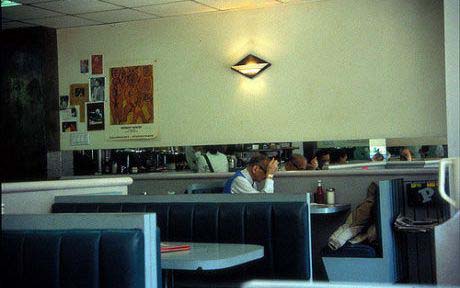Is Isolation Our Fate? Alienation in the 21st Century

In our time, many feel loneliness and feel “on the outside”; experts talk roundly about “alienation in the 21st century”.
 Yet, for the many who feel this, it’s no abstract topic. Psychotherapists know that this vital matter can cut right to the heart of the quality and value of our lives.
Yet, for the many who feel this, it’s no abstract topic. Psychotherapists know that this vital matter can cut right to the heart of the quality and value of our lives.
What can individuals who experience this sense of alienation and loneliness do?
Admitting Our Alienation: Breaking the Taboo
Loneliness and alienation can be very hard to talk about! In fact, there’s a cultural taboo against it.
In their book, The Lonely American, authors and psychoanalytic psychiatrists Jacqueline Olds and Richard Schwartz describe meeting stiff resistance from their patients when asking about loneliness. They concluded that large numbers of people who believed they were depressed were actually lonely — not at all the same thing. Yet people weren’t willing to describe how they felt in those terms. Why? As Olds and Schwartz tell us, “Talking about loneliness in America is deeply stigmatized; we see ourselves as a self-reliant people who do not whine about neediness.” Given the power of the myth of rugged individualism here in Canada, I doubt that we differ much from our American neighbours on this indicator of alienation in the 21st century.
All Connectivity, No Soul
“All hat, no cattle” –growing up in Western Canada, that was how we described someone who looked on top of things, but really was far from it. Our culture’s like that when it comes to connecting with others. We possess all manner of “connectivity” technologies — Facebook, Twitter, Instagram, text, etc — and we put huge amounts of time and effort into “connecting” online. But the question is, do these online “connections” assuage our sense of loneliness and alienation, or make it worse? We can interact with all manner of people online, but can we be ourselves — and be accepted for who we are?
Feeling Like I’ve Got No Tribe
With the isolation that our technology imposes on us, and the individualized and isolated lives that many in North America lead, many people experience no true sense of a “we” that provides a feeling of belonging. Group membership, whether to community or to organizations in the community has declined dramatically in recent years. People often feel like they can’t find the value in group membership.
Feeling Like I’ve Got No Place
Often people today feel very limited connection to nature, or to the land. Unlike even our fairly recent ancestors, we have no connection to the land. We live in houses, townhouses, apartments and condos at a remove from nature, and our communities and transportation systems keep away from real contact with trees or living things, other than perhaps the occasional family pet. Again, our leisure activities often tend to seal us off from the truly natural realm. The feeling of connection with nature, that we are a part of nature, is most often not a part of our consciousness. It’s very easy for modern humans to feel like isolated atoms adrift in the cosmos.
Feeling Like I’ve Got Nothing That Matters
Similarly, many people feel cut off from values that matter. For better or worse, living in a post-organized-religion society isolates many in our culture from any sense of divinity or any underlying principle that unifies or gives meaning to the cosmos. Other possible values, like humanistic commitment to the human race as a whole, often seem remote and abstract. The individual is left without symbols that connect to any greater or overarching sense of meaning or purpose. This is one additional level of feeling alienation in the 21st century.

Connections and Engagement
As commentators since the time of Emile Durkheim have pointed out, the individual’s experience of alienation in our time is often rooted in society-wide problems of social disconnection and the general experience in our culture of a sense of not being rooted in the natural or social worlds, or even in the fabric of each of our own individual lives.
It’s very apparent that the experience of each individual is deeply affected by broader trends in the social collective, which will hopefully be altered by increasing awareness, and a broad-based desire for social change. Nonetheless, here and now, effective work in individual /a-midlife-transition can often be of great assistance to the individual in removing barriers and making connections to the individual’s own being and sense of her- or himself, a sense of meaningful involvement with others, and a deeper sense of connection with society and the surrounding world as a whole.
Brian Collinson, Registered Psychotherapist & Jungian Analyst
[cta]

 Yet, for the many who feel this, it’s no abstract topic.
Yet, for the many who feel this, it’s no abstract topic.